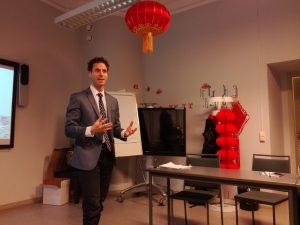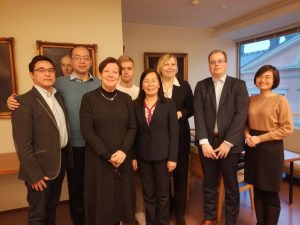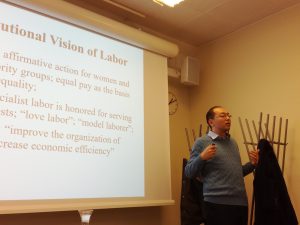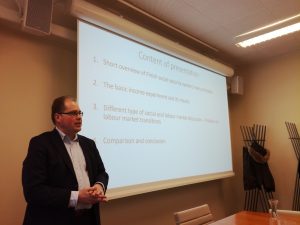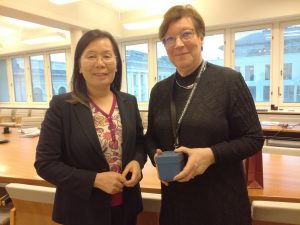In today’s post, the Finnish China Law Centre will be introducing a minor programme offered at the University of Lapland, titled “China: Domestic, Global and Arctic Trajectories”. Spearheaded by Professor Matti Nojonen, the programme adopts an interdisciplinary approach when considering the relationship between domestic driving forces within China, its visions of globalisation as well as its escalating engagement in the Arctic Regions. Upon completion of the course, students will be expected to be equipped with the proficiency of meta-cognitive skills in conceptualizing the distinctive Chinese domestic realities. Through that, it is expected that students will have a better proficiency when interacting with Chinese companies and institutions in the global and regional context, particularly that of the Arctic region.
This minor programme has a scope of 25 ECTS credits, where the following six courses, each granting 5 ECTS credits upon completion are being offered.
1. Chinese Culture and History
The course offers a critical and pluralist view on the history and culture of China, which encompasses the intersectionalities underlying the continuity and discontinuity of institutions, virtues and culture on a meta-level, and how that continues to affect nation building in modern China.
2. China’s Political System and China as a Global Actor
The course discusses the recent development of China which allows its ascension from a global actor to great power through a political lens by analyzing the role of the Party and other institutions. It seeks to provide the perspective where the Arctic as a region is not immune to the ambition of China’s strategy and policies which is driven by both economic and political actors.
3. China – Business and State
This course aims to explore the issues influencing the economic development, business practices and strategic behavior of China. A critical examination of how traditional culture shapes market and business behavior is undertaken. This courses also seeks to analyse the growing Chinese economic activities and presence in the Arctic region from both state-endorsed and private involvements through investments and tourism.
4. Chinese Society – China and Media
The course provides a multidimensional analysis of the role and forms of media and how that shapes interactions in daily life. The role of “parallel” media companies is studied in relation to their connection with the Party and censorship machine in China. Furthermore, the demography of social media users is given attention in highlighting the dynamics between freedom of speech and censorship.
5. Legal Culture and Legal System in Chinese Society
The course focuses on the question of a Chinese understanding of the rule of law through a historical and theoretical lens. Furthermore, a contextual approach is taken whereby each year a particular sector of legal development in China will be studied in detail through the intersectionality of culture, institutions and politics.
6. Chinese Language
The course aims to provide students with the basic knowledge of Chinese language and related cultural issues.
The course welcomes the participation of all degree and exchange students at the University of Lapland and Open University. The courses run throughout the academic year. Therefore, students will have the flexibility of taking individual modules from the programme or participate in the entire minor programme. The flexibility of the course is also extended to students from other disciplines where there are no pre-requisites that are required for their participation in the course.
The language of instruction for all modules and materials used in the programme is in English. The studies employ a wide variety of pedagogical approaches in the forms of lectures, seminars, movies and media analyses, related literature as well as a flipped-classroom approach, encouraging engagement beyond the chalk-and-talk settings. Aware of the virtue of partnership, the university often invites guest researchers from partner universities to deliver guest lectures to complement the learning of the students.
The programme has been running for four years now and has attracted 535 students.
More information on the course can be found at the University of Lapland’s website and weboodi.
This blog post was written by the Center’s intern, Mr. Kelvin Choo Wei Cheng. Kelvin is a undergraduate student at the University of Warwick, and an exchange student at University of Helsinki for the autumn and spring terms 2019-2020.







